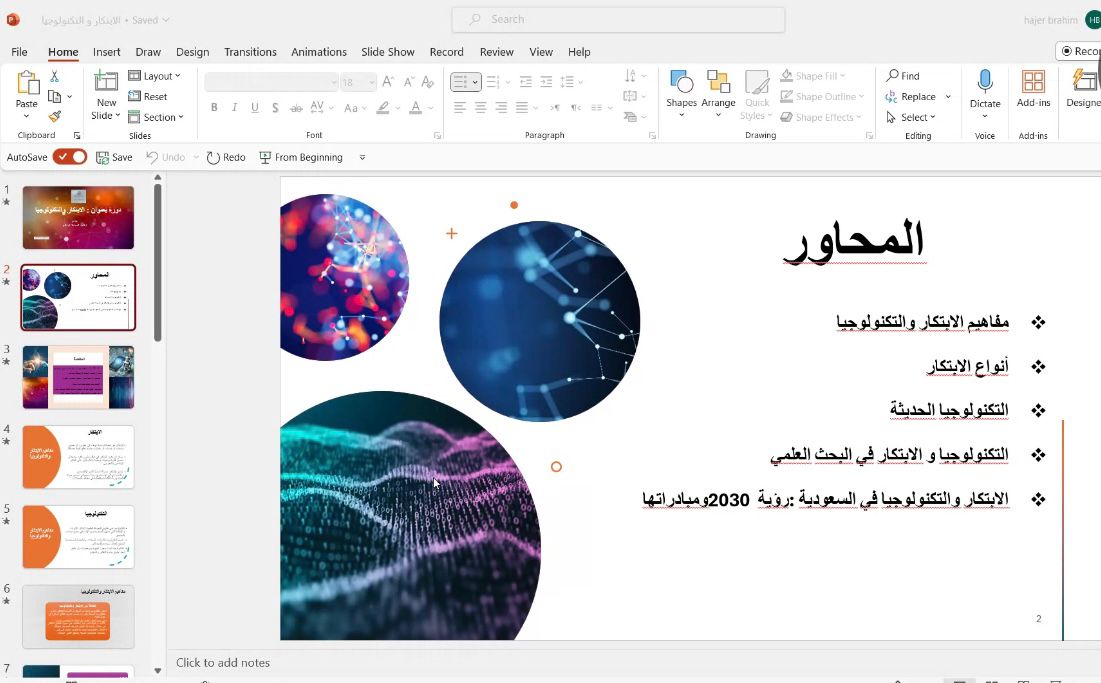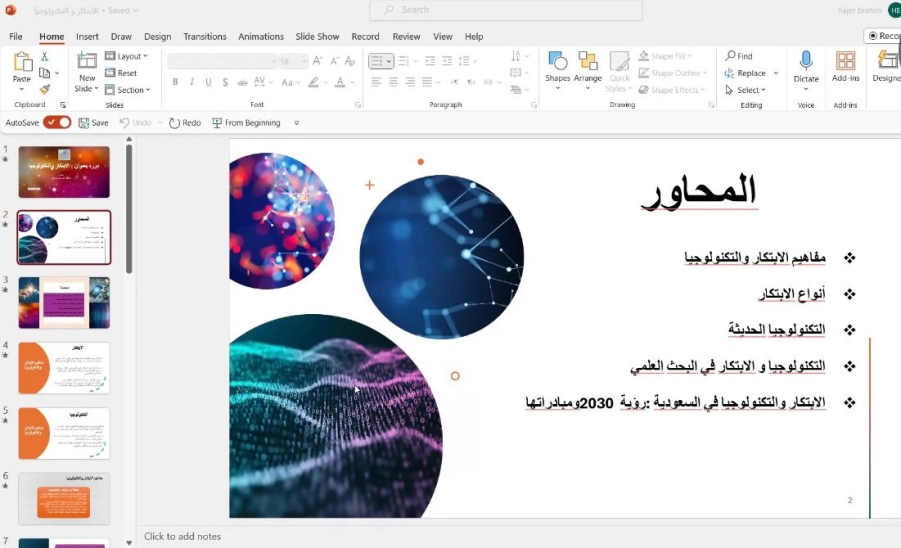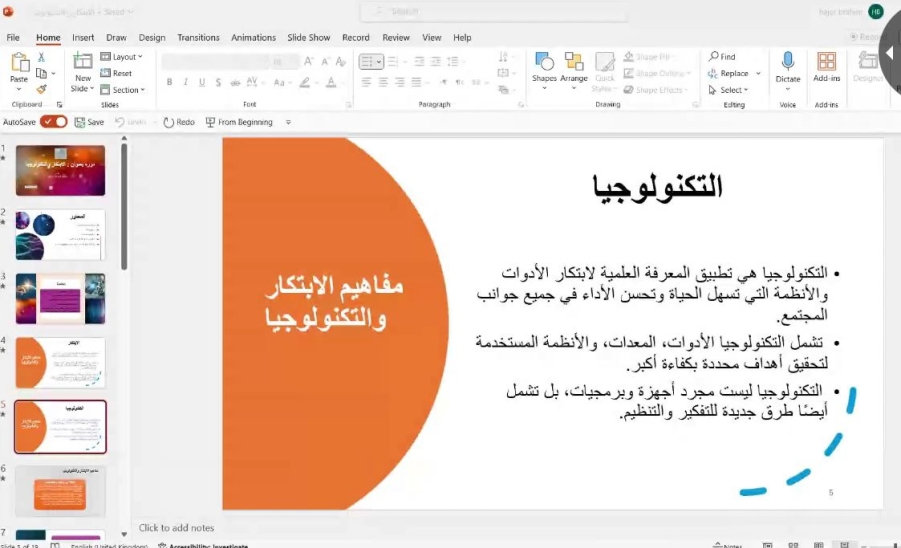The Vice-Dean's Office for Postgraduate Studies and Scientific Research, represented by the Innovation and Entrepreneurship, organized, in cooperation with the Computer and Information Department, a training course entitled (Innovation and Technology).
The course was presented by Ms. Hajar Ibrahim and introduced innovation as developing or improving new products, services or processes that add value to society and enhance economic and social growth. Technology, on the other hand, was defined as the use of scientific knowledge to design and develop tools and techniques that help achieve goals with greater efficiency.
The complementary relationship between innovation and technology was addressed, as each reinforces the other. Innovation relies on technology to transform creative ideas into practical applications, while technology contributes to opening new horizons for innovation and developing solutions that enhance efficiency and quality of life. The role of modern technologies was also reviewed, such as artificial intelligence, which enables machines to perform tasks that require human intelligence, and includes machine learning, neural networks, and deep learning.
The importance of artificial intelligence in creating innovative opportunities was also discussed, improving efficiency and developing new products. Other important technologies were also discussed, such as: big data: which is used to analyze huge amounts of information and extract valuable insights that support smart decision-making and accelerate discoveries in various fields such as healthcare and scientific research, the Internet of Things (IoT): which connects devices to each other via the Internet, allowing the exchange of information and enhancing the efficiency of operations in the fields of industry, agriculture, and transportation, 3D printing: which enables the manufacture of accurate and effective models, supporting innovation in the design of various products and tools, virtual and augmented reality: these technologies are used to provide simulation experiences that contribute to reducing costs and enhancing training and education, especially in the medical field, and blockchain: which provides a secure infrastructure for documenting and exchanging data and enhancing integrity and transparency in various sectors, including scientific research
These technologies together contribute to supporting innovation and opening new horizons for developing solutions that are in line with the needs of day to day life.






